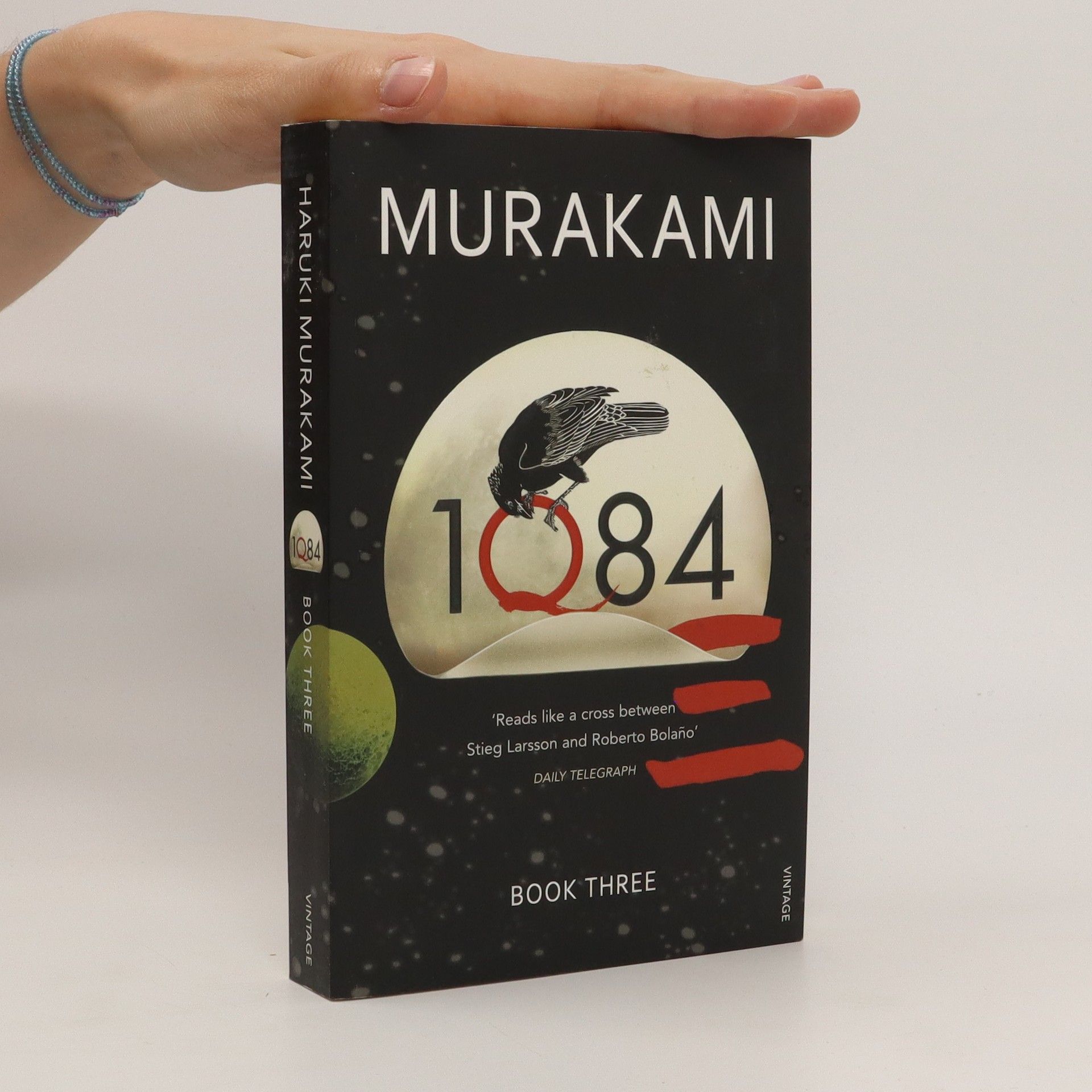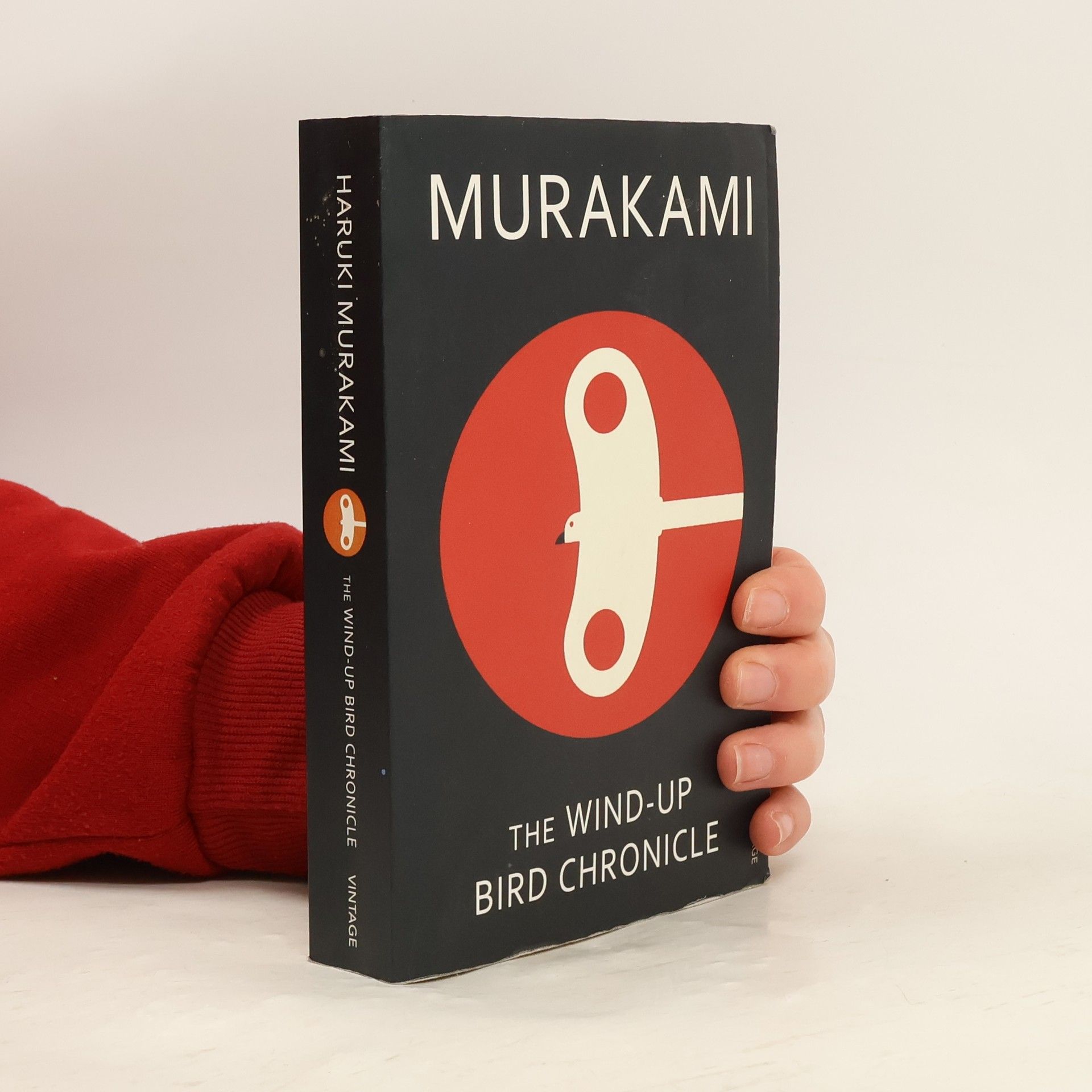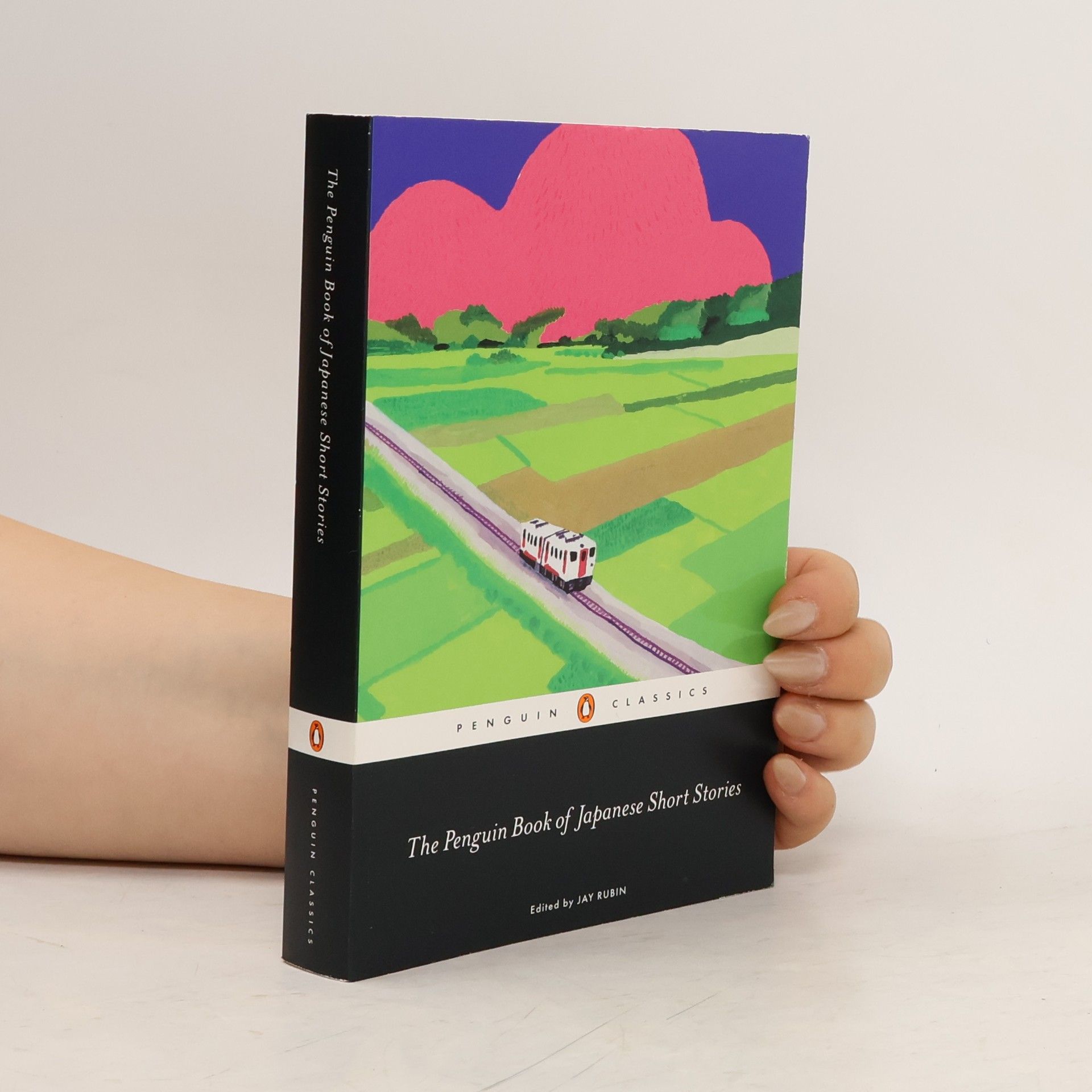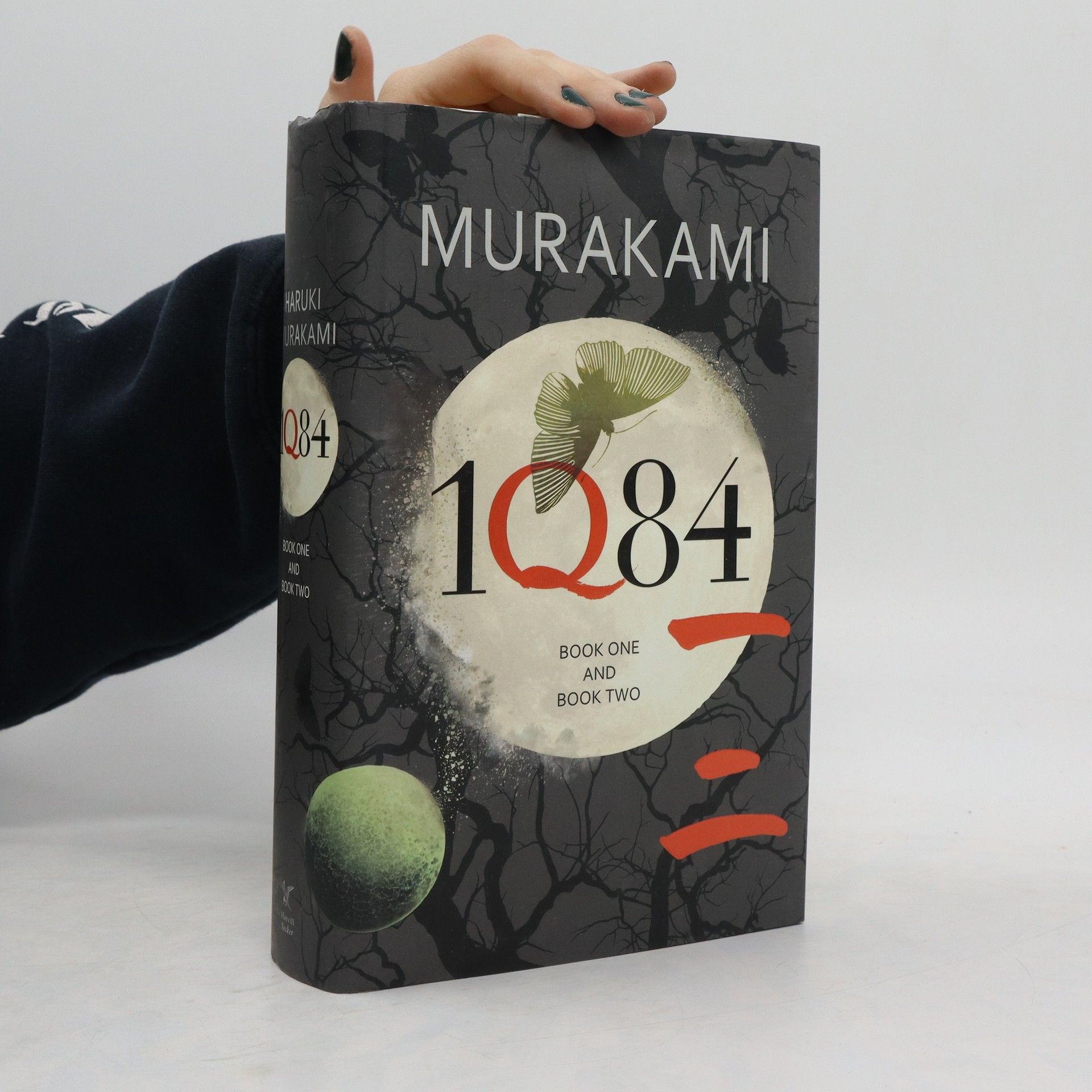1Q84: Book One and Book Two
- 623 stránok
- 22 hodin čítania
Vol. 2: book three translated from the Japanese by Philip Gabriel
Jay Rubin je americký akademik a prekladateľ, ktorý sa preslávil najmä prekladmi diel japonského romanopisca Haruki Murakamiho do angličtiny. Okrem toho je autorom sprievodcu po japonskom jazyku a literárnej štúdie o Murakamim. Jeho práca sa sústreďuje na hlbšie pochopenie japonskej literatúry a jej vplyvu. Rubinove preklady a analýzy približujú japonskú kultúru širšiemu publiku.







Vol. 2: book three translated from the Japanese by Philip Gabriel
A major new anthology of great Japanese short stories introduced by Haruki Murakami.This fantastically varied and exciting collection celebrates the great Japanese short story collection, from its origins in the nineteenth century to the remarkable practitioners writing today. Curated by Jay Rubin (who has himself freshly translated several of the stories) and introduced by Haruki Murakami this is a book which will be a revelation to many of its readers. Short story writers already well-known to English-language readers are all included - Tanizaki, Akutagawa, Murakami, Mishima, Kawabata, Yoshimoto - but also many surprising new finds. From Tsushima Yuko's 'Flames' to Sawanishi Yuten's 'Filling Up with Sugar', from Hoshi Shin'ichi's 'Shoulder-Top Secretary' to Yoshimoto Banana's 'Bee Honey', The Penguin Book of Japanese Short Stories is filled with fear, charm, beauty and comedy.
Toru Okada's cat has disappeared and this has unsettled his wife, who is herself growing more distant every day. Then there are the increasingly explicit telephone calls he has started receiving. As this compelling story unfolds, the tidy suburban realities of Okada's vague and blameless life, spent cooking, reading, listening to jazz and opera and drinking beer at the kitchen table, are turned inside out, and he embarks on a bizarre journey, guided (however obscurely) by a succession of characters, each with a tale to tell.
Tridsaťsedemročný Tóru Watanabe spomína na svoje vysokoškolské časy, na búrlivé obdobie politických nepokojov v Tokiu, na krehké priateľstvá, ktoré si však človek zapamätá na celý život, na mladícke vášne a túžby, noci plné nezáväzného sexu a na svoju prvú lásku Naoko, priateľku svojho najlepšieho kamaráta Kizukiho. Naoko sa po Kizukiho smrti uzavrie do svojho sveta a Tórua čoraz väčšmi priťahuje divoká Midori, s ktorou sa stretáva v škole na prednáškach. Uvedomí si, že smrť nie je protikladom života, ale jeho súčasťou, a že si napokon bude musieť vybrať medzi minulosťou a budúcnosťou.
An alternate cover for this isbn can be found here. Book Two of 1Q84 ends with Aomame standing on the Metropolitan Expressway with a gun between her lips. She has come tantalisingly close to meeting her beloved Tengo only to have him slip away at the last minute. The followers of the cult leader she assassinated are determined to track her down and she has been living in hiding, completely isolated from the world. However, Tengo has also resolved to find Aomame. As the two of them uncover more and more about the strange world of 1Q84, and the mysterious Little People, their longing for one another grows. Can they find each other before they themselves are found?
REVISED AND UPDATED WITH NEW MATERIAL ON 1Q84As a young man, Haruki Murakami played records and mixed drinks at his Tokyo Jazz club, Peter Cat, then wrote at the kitchen table until the sun came up. He loves music of all kinds - jazz, classical, folk, rock - and has more than six thousand records at home. And when he writes, his words have a music all their own, much of it learned from jazz. Jay Rubin, a self-confessed fan, has written a book for other fans who want to know more about this reclusive writer. He reveals the autobiographical elements in Murakami's fiction, and explains how he developed a distinctive new style in Japanese writing. In tracing Murakami's career, he uses interviews he conducted with the author between 1993 and 2001, and draws on insights and observations gathered from over ten years of collaborating with Murakami on translations of his works.
Dvadsaťštyri majstrovských poviedok z rokov 1979 až 2006 sú mimoriadne skvelou ukážkou autorovho strhujúceho rukopisu a podmanivosti jeho krátkych próz. V príbehoch, ktoré sa odohrávajú v Japonsku, Taliansku, Grécku či na Havaji, opäť provokuje fascinujúcim a nekompromisným stieraním hranice medzi možným a nemožným, presvedčivo zachováva rovnováhu medzi oboma týmito svetmi, plynulo prechádza zo sveta každodennosti do sveta snov, a práve v tom balansovaní na hrane nemilosrdne odhaľ uje temné aj krehké stránky nás všetkých a zraniteľnosť našej duše.
A short, sleek novel of encounters set in Tokyo during the witching hours between midnight and dawn, and every bit as gripping as Haruki Murakami’s masterworks The Wind-Up Bird Chronicle and Kafka on the Shore. At its center are two sisters—Eri, a fashion model slumbering her way into oblivion, and Mari, a young student soon led from solitary reading at an anonymous Denny’s toward people whose lives are radically alien to her own: a jazz trombonist who claims they’ve met before, a burly female “love hotel” manager and her maid staff, and a Chinese prostitute savagely brutalized by a businessman. These “night people” are haunted by secrets and needs that draw them together more powerfully than the differing circumstances that might keep them apart, and it soon becomes clear that Eri’s slumber—mysteriously tied to the businessman plagued by the mark of his crime—will either restore or annihilate her. After Dark moves from mesmerizing drama to metaphysical speculation, interweaving time and space as well as memory and perspective into a seamless exploration of human agency—the interplay between self-expression and empathy, between the power of observation and the scope of compassion and love. Murakami’s trademark humor, psychological insight, and grasp of spirit and morality are here distilled with an extraordinary, harmonious mastery.
A deluxe hardcover reproduction of Naughty Dog's original Crash Bandicoot developer's bible! Take a rare glimpse into the making of a videogame icon, and gain a first-hand taste of the undistilled creativity that brought Crash, Cortex, Aku Aku, and the rest of your favorite characters to millions of screens around the world! Reproducing Naughty Dog's original design document for Crash Bandicoot from the best available sources, this unique volume features original concept illustrations and includes a foreword from Crash's creators to lend insight into how Crash Bandicoot came to be the unforgettable videogame character he is today. This tome is sure to please all who possess a thirst for imagination and curiosity surrounding the creation of games!